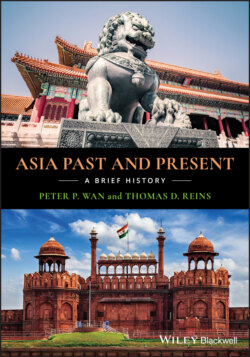Читать книгу Asia Past and Present - Peter P. Wan - Страница 34
The Golden Age of Classical Chinese Philosophy: Confucianism, Daoism, and Legalism
ОглавлениеConfucius believed that humans are good by nature, and “the love of humanity” constitutes the core of Confucianism.
Legalists believed that “humans are evil by nature, and goodness is artificial.” —Xun Zi
Daoism taught, “Heaven and earth are unfeeling; they treat all things with indifference. The sage is unfeeling; he treats the multitudes of common people with indifference.” —Lao Zi
The profound changes introduced by the use of iron destroyed the old order, and created a new reality that was chaotic and brutally competitive. People felt an urgency to find answers to the life‐and‐death questions of how to survive in this new environment. This very practical need fueled the “Golden Age of Classical Chinese Philosophy.” It is described as a time when “a hundred flowers bloomed and a hundred schools of thought contended.” Men motivated by all kinds of purposes stepped forward with all kinds of answers. They were not nerdy men living in ivory towers. Most of them were hard‐nosed realists. They combined philosophy, statecraft, and common sense, often combined with great literary skill, to provide real answers to the real challenges of the day. This was the time when China’s three main schools of classical philosophy took shape.
